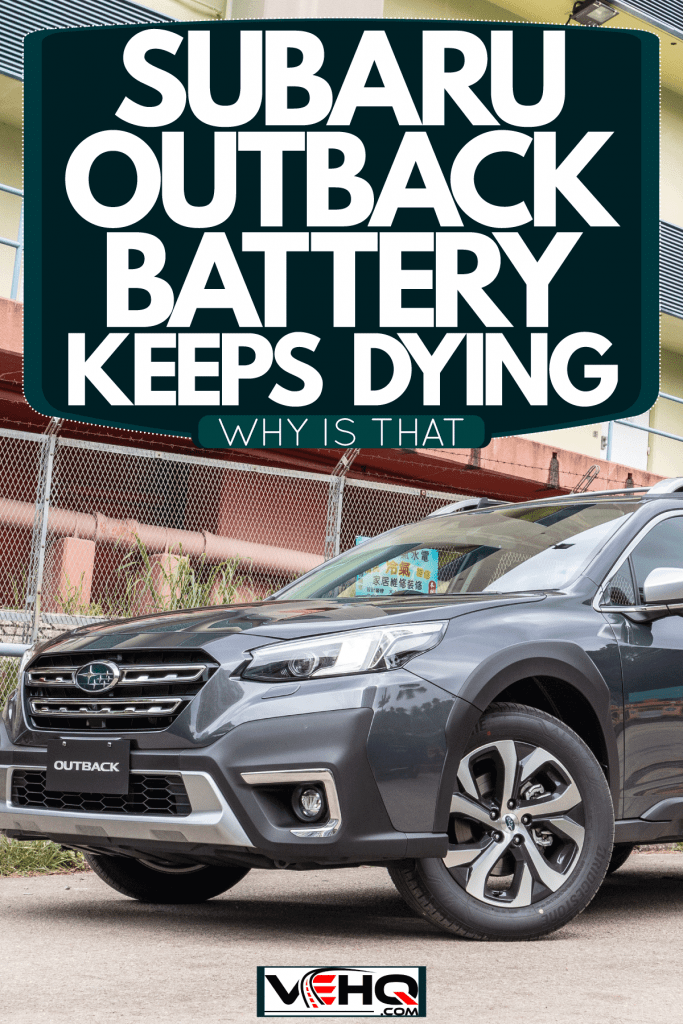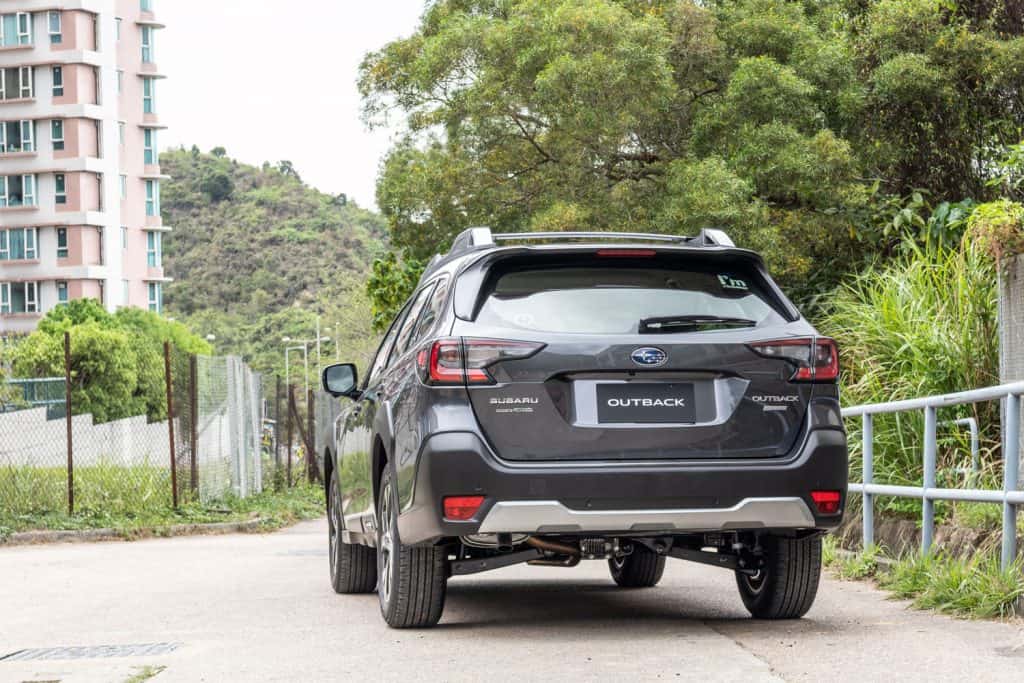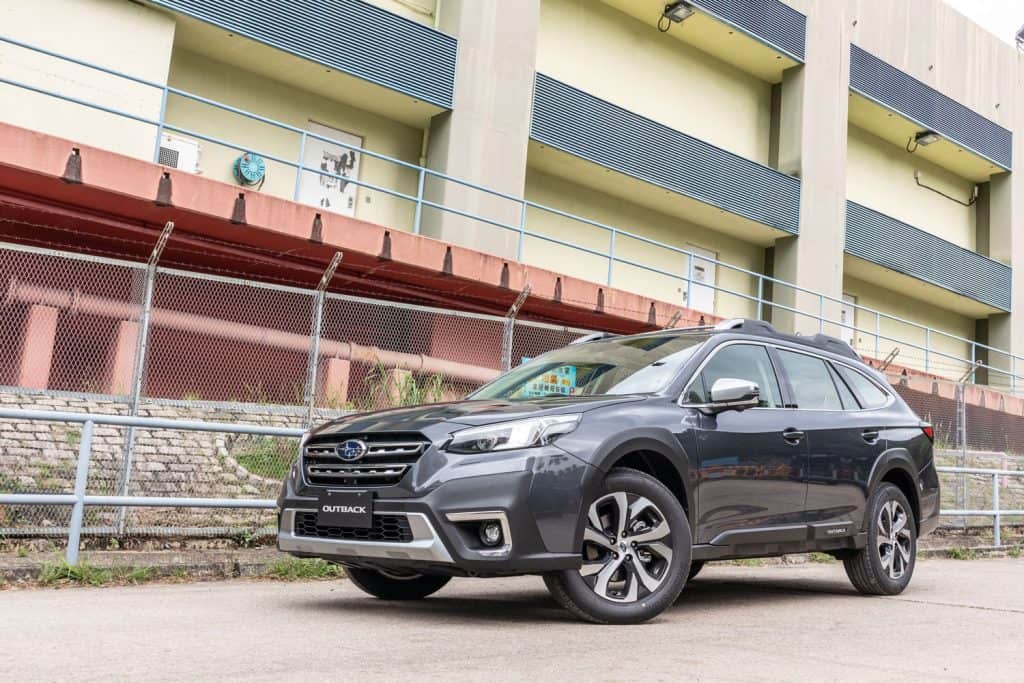Your vehicle's battery is quite literally its lifeline. The engine relies on the battery to wake up the alternator and bring the electrical system to life. Subaru owners have been noticing their batteries dying more and more, asking the question of why is this happening? If you've asked yourself this question, you're in the right place to find the answer!
There are a number of occurrences that will affect the life span of your battery. Running into any of these problems will point to battery issues, which can be checked by either your local dealership or auto store. Troubleshooting issues include:
- Extreme temperatures
- Infrequent driving
- Improper battery power
- Leaving lights on
- Corrosion of electric system
- Too old
Some of these points are easy for drivers to point out. However, it can be easy to forget when the battery was installed or if there is any corrosion present. In this article, we'll be giving in-depth answers on how to look for and solve each of these issues. Keep reading to protect your battery and limit your chances of getting stranded with a dead battery!

Troubleshooting Your Battery Issues
A few are effortless to diagnose, and others will need a trained eye. Keep in mind all of your driving habits and natural surroundings will play a role in your battery's duration. Outbacks that are driven hard and often may even require a more powerful battery which can be discussed with a Subaru certified technician.
Extreme temperatures
Both the heat and cold will affect your battery. The heat can run the battery harder to try to keep up with cooling down the vehicle. In addition, in extreme heat, there is a potential for battery failure due to it bulging or disfiguring the battery tray. To cut down on these incidents, try to park your car in the garage, or any shaded spot.
Intense cold weather is another culprit. As stated by the Subaru website, the cold can reduce a battery's strength, make it work harder to warm the engine, and doesn't allow fuel to evaporate as well. To avoid this, park your car in the garage away from snow and wind. Then, allow your Outback plenty of time to warm up before driving it.
Infrequent driving
Work from home individuals or those with other means of transportation might not drive their Outbacks daily. When the battery isn't refreshed every so often, the alternator and starter go cold from not being recharged. To fix this issue, take your Outback on fun outings to just drive around. Go to a store a little further away, or take the back roads.
According to Subaru's recommendations, you'll want to run the car for at least 30 minutes to heat the fluids and give the electrical system to recharge the alternator. If casual driving isn't an option, take your car into the driveway, or a ventilated parking spot and let it run. Turn on the A/C to give the air filter a refresh as well.
Improper battery power
Subaru Outbacks are a popular car to add modifications onto, especially by those that like to go off the grid. With any extra added lights, sound systems, or electrical add ons, your battery will be working harder. In this situation, it's time to upgrade your battery. Talk to a tech about a higher CCA battery or even a higher group battery to give your vehicle more power.
Leaving lights on
This is a classic issue that just about everyone knows. Leaving lights on overnight saps energy from the battery. The more often this happens, the quicker your battery is drained and it will end up failing. To prevent this, double-check that lights are off and doors are locked to keep the dome lights off. You can always leave yourself little notes if it's hard to remember.
Corrosion of electric system
A mixture of environmental and internal happenings can cause corrosion to the battery. Salt, water, and debris can react poorly with the gases released by the battery and leave residue on the connecting cables. Wet cell batteries are not sealed and naturally release gases from chemical reactions. If trapped or not properly ventilated, the reaction leftovers will stick.
Take a look at the connection cables and polarity spots. If you see greenish bluish residue, that's corrosion. You can disconnect your battery and use a wire brush to scrape the battery clean. It'll take about 5 minutes or so and will let you know if that was the only problem or not.
Click here to view this wire brush on Amazon.
Too old
Sometimes, the problem is as simple as it's too old. Subaru batteries should last you between 3-5 years, according to the manufacturer. Most technicians that install the battery will mark when it was installed. Have another tech or knowledgeable car person take a look at it. If that's the case, an easy replacement is a solution.
How Long Should A Subaru Outback Battery Last?

Mike Shaw Subaru of Colorado states that your battery should be replaced every 3-5 years. It could be more frequent based on the issues listed above, but should still be within that yearly range if not. When you take your Outback in for oil changes or any other maintenance, ask the technician to check the battery's voltage and confirm that it's in a normal voltage range, which is 12-13.
Do Subaru Outbacks Have Battery Problems?
As seen in Subaru forums, it is very common for Outbacks to have battery problems. It seems to be that each year's new model is becoming more and more electric-based, but the battery stays the same. As the need for more power is sent to the electrical systems, it's being drained too fast and wearing on the alternator.
Based on standard driving habits with regular maintenance, your battery shouldn't be dying after a recent change out. OEM batteries, original equipment manufacturer, seem to be the least of Subarus concerns. Getting your car jumped or constantly replacing the battery may drive you to your wit's end. Installing a more powerful battery, such as a Group 34, will increase your CCA and life cycle.
How Can You Tell If Your Vehicle's Battery Is Dying?
You know your car better than anyone else. When one of the below begins to happen, you'll notice it right away:
- Dim headlights
- Slow power windows
- Clicking sound when turning the car on
- Slow crank
- Necessary to press on the gas pedal when starting the car
- It is harder to start on colder mornings
- Check engine light comes on
- Bad smell under the hood
A telltale sign is having a clicking sound and slower startup when you turn the key in the ignition. Hearing the engine turn over more than once means you should take a trip to the local dealership for a scan. You'll also notice at night you might not see as well from your lights being dim and the electric-powered features are working slowly.
An odd but spot-on signifier of a dying battery is smelling something strange when you open the hood and are near the battery. The odor comes from the built-up corrosion of trapped gases released by the battery. This will be easy to spot if you have a wet cell battery since it's ventilated but can be tricky to spot on a VRLA battery that is sealed.
Tip: Buy a car battery setting saver to keep all your vehicle's personalization when the battery gets swapped out.
Click here to view this setting saver on Amazon.
What Type Of Battery Do Subaru Outbacks Use?
Subaru Outbacks are most often found with Group 25 VRLA batteries since they do not require additional maintenance like an SLI. VRLAs are the OEM standard off the line and will be covered under the Subaru warranty guidelines. However, you can always opt for a larger battery with a higher CCA (Cold-Cranking Amps), which contains higher power than OEMs.
There are two types of batteries seen in the automotive industry, wet cell or VRLA. Wet cell batteries are SLI (Starting, Lighting, and Ignition) because of their chemical reaction to start the engine. VRLA (Valve-Regulated Lead-Acid) batteries are sealed and keep the moisture inside to pressurize and start the engine.
Wet Cell
- Flooded
- May or may not require maintenance
- SLI
- Deep cycle
VRLA
- Sealed
- Gel cell
- Absorbed Glass Mat
Is The Battery Covered Under Subaru Warranty?
The basic warranty given out by Subaru is 36 months or 36,000 miles, whichever comes first. The battery is a bit of a gray area but is often covered. The battery will not be covered due to neglect of the car, cracks, accidental fires, or road hazards. To keep up with the warranty, check the maintenance recommendations in the vehicle's owner's manual.
As with most warranties, their warranty only covers genuine Subaru parts, and numerous modifications can void the warranty. If you want to add different parts to the electrical system, it will be more beneficial to pay out of pocket for a more powerful battery. Outback owners on the Subaru Outback forum recommended going to a non-OEM battery. The higher the CCA, the less you'll have to worry about the battery dying.
As you can see

Subaru Outbacks have a slight reputation for weak batteries. No worries though, you'll be able to switch it out if you still have a warranty or pay out of pocket for a longer-lasting one. Keep an eye out for slow starts, and accidentally leaving any lights on overnight. You can always take your Outback to a dealership to have them run a voltage test on your battery.
More issues with your Subaru? Check out these posts below for some more guidance:


